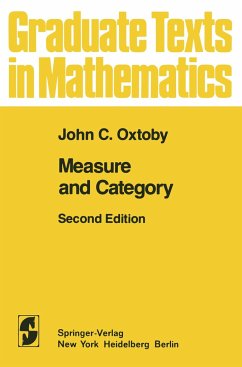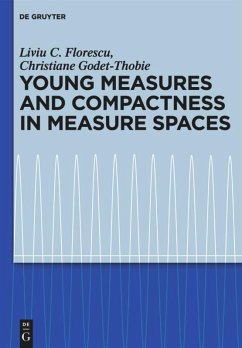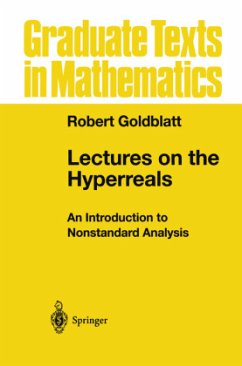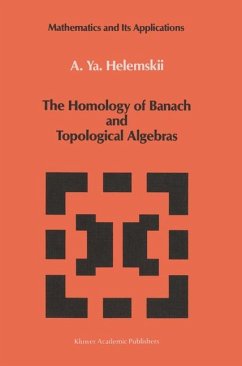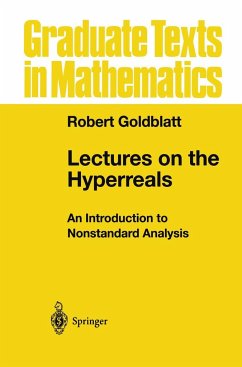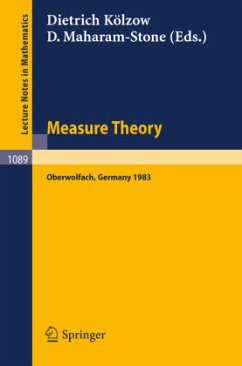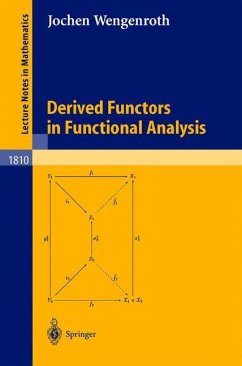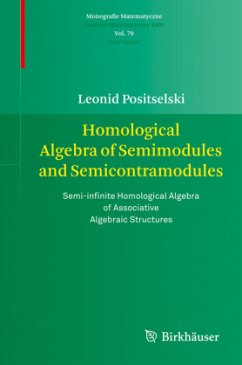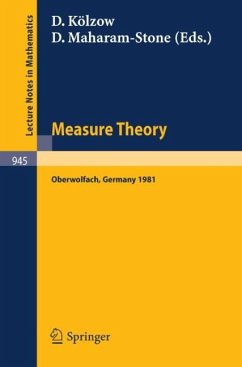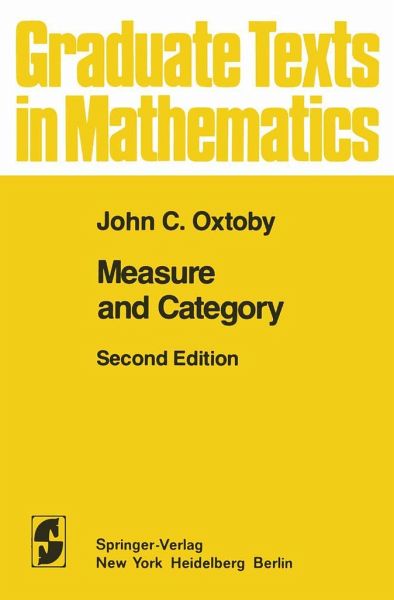
Measure and Category
A Survey of the Analogies between Topological and Measure Spaces
Versandkostenfrei!
Versandfertig in 1-2 Wochen
64,99 €
inkl. MwSt.
Weitere Ausgaben:

PAYBACK Punkte
32 °P sammeln!
In this edition, a set of Supplementary Notes and Remarks has been added at the end, grouped according to chapter. Some of these call attention to subsequent developments, others add further explanation or additional remarks. Most of the remarks are accompanied by a briefly indicated proof, which is sometimes different from the one given in the reference cited. The list of references has been expanded to include many recent contributions, but it is still not intended to be exhaustive. John C. Oxtoby Bryn Mawr, April 1980 Preface to the First Edition This book has two main themes: the Baire cat...
In this edition, a set of Supplementary Notes and Remarks has been added at the end, grouped according to chapter. Some of these call attention to subsequent developments, others add further explanation or additional remarks. Most of the remarks are accompanied by a briefly indicated proof, which is sometimes different from the one given in the reference cited. The list of references has been expanded to include many recent contributions, but it is still not intended to be exhaustive. John C. Oxtoby Bryn Mawr, April 1980 Preface to the First Edition This book has two main themes: the Baire category theorem as a method for proving existence, and the "duality" between measure and category. The category method is illustrated by a variety of typical applications, and the analogy between measure and category is explored in all of its ramifications. To this end, the elements of metric topology are reviewed and the principal properties of Lebesgue measure are derived. It turns out that Lebesgue integration is not essential for present purposes-the Riemann integral is sufficient. Concepts of general measure theory and topology are introduced, but not just for the sake of generality. Needless to say, the term "category" refers always to Baire category; it has nothing to do with the term as it is used in homological algebra.






